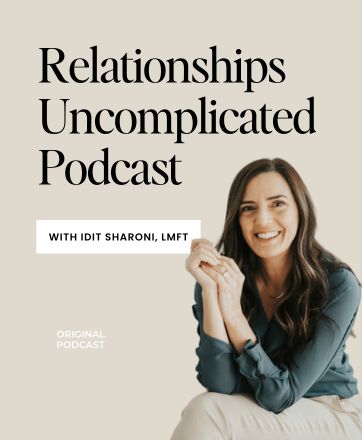Revelation of an affair hurts terribly. Your partner knows that you betrayed them and you know your relationship isn’t what they believed it was. You hate that your actions caused so much confusion and sorrow. You know that “I’m sorry” isn’t nearly enough to address the damage done. Pain and grief that may be flooding the space that used to connect you. Anger and reactivity may be threatening your efforts to stay together. If you sense that this is a critical moment in your fragile relationship, you’re right. If showing remorse after cheating seems forced or insincere, the process of surviving infidelity could be thoroughly upended. But you don’t have to face this juncture alone.

Forward movement and reconnection definitely hinges on genuine remorse. Why? When you show remorse after cheating, you demonstrate your readiness to patiently and effectively lay the groundwork for true forgiveness after betrayal, deep healing, and lasting relationship repair.
Let’s explore that a bit more.
Why Is Showing Remorse After Cheating So Important?
To understand the crucial nature of genuine remorse, consider the emotional landscape of infidelity. To say the terrain is rough is no understatement. Betrayal is like suddenly falling into a deep valley. The trauma of it wounds your partner in ways that can make them feel incoherent and feel diminished in your eyes and their own.
Broken trust, on the other hand, is a rocky hill to climb. Your partner’s desire and ability to believe that your words and actions are congruent takes time, tenacity, and a commitment on your part. You must continually aim to take your relationship higher with unmitigated transparency and a desire to become a means for healing.
Showing Remorse And Surviving Infidelity
You must also consider your partner’s need for emotional safety. This can be a winding road. Your patience and slowness to anger are so important as you hear your partner out and validate their myriad expressions, highs, and lows; all the while fielding their questions honestly and openly.
Are you at a loss as to how to move through such a difficult landscape effectively? Is it even possible to communicate your remorse? Maybe you wonder if it’s just best to just move on or encourage your partner to “let it go”? Wouldn’t that be the best path to relief for you both?
Our team of affair recovery experts has witnessed a lot of recovering couples, who would shout an emphatic, “No!”
Genuine Remorse is Not a Bonus in Healing…It’s a Non-Negotiable for Surviving Infidelity.
Forgiveness after betrayal and rebuilding your connection cannot happen without the foundation of genuine remorse. To allay the idea that you might be able to skip ahead in your healing without showing remorse after cheating, consider the following research findings:
- Remorse significantly increases forgiveness after interpersonal conflict or wrongdoing. According to a Central Washington University study, remorse was more likely than empathy alone to improve the odds of forgiveness by the wronged party.
- Remorse facilitates relationship repair. According to Frontiers in Psychology, remorse reduces negative emotions in a relationship. Thereby, the desire to reconnect rises.
- Forgiveness without remorse is rarely sustainable. Exploration of the research summarized in Psyche.com, reveals that the chances of meaningful reconciliation increase substantially when the wronged party is the beneficiary of clearly expressed remorse.
So, with science affirming the need for genuine remorse in your affair recovery, a very practical question remains:
What Does True Remorse Actually Look Like?
Showing remorse after cheating is specific and intentional. Again, it’s more than, “I’m sorry,” as you mourn the fact that you did something hurtful. Or bemoaning the fact that your actions led to so much ongoing fallout. True remorse includes commitment to a roadmap for healing that tames the challenging emotional landscape you must now face together.

Showing genuine remorse after cheating also includes these key components:
- Full ownership of the betrayal. Genuine remorse assumes no defensive posture or attempt to blame and shame the person they hurt.
- Expression of emotional empathy. Real remorse has substance. It speaks to the pain caused, with a deep understanding of the betrayal.
- Transparency and willingness to answer hard questions. True remorse leaves all deception behind.
- Consistent, trustworthy change over time. Full remorse is a full-time job. It stays true to the desire to change.
- Sincere commitment to rebuilding safety. Availability, sensitivity, comfort, and hope are offered often and as needed.
Still, it’s one thing to understand all of this in your head, but what if expressing emotion is difficult for you? What then?
What If I Feel Remorse But Don’t Know How to Show It?
Are you worried that you’ll do more harm than good even though you do want to repair your relationship? It’s okay to feel that way, most of us weren’t explicitly taught how to show remorse. It certainly isn’t intuitive in such a highly charged emotional situation.
For added guidance, Relationship Experts offers an online Remorse Blueprint Course that can help. Our mini-course succinctly walks you through the essential elements of effective remorse.
Moreover, the Remorse Blueprint is a go-to resource for articulating the sincerity of your sorrow and empathy. The course is
- Designed by licensed affair recovery therapists.
- A way to help unfaithful partners express and show remorse so that it is trauma-informed and healing for your hurt partner.
- A complete guide; filled with practical scripts, common mistakes to avoid, and direction for managing intense emotional responses.
- Drawn and created from years of real-world experience with hundreds of infidelity recovering couples.

Adding this mini-course to your knowledge about remorse can increase the odds that your apology is accepted and that your efforts eventually lead to solid affair recovery and your partner’s genuine forgiveness.
Can a Relationship Heal Without showing Remorse?
Trying to move forward without showing remorse after cheating isn’t worth the risk. Just as forgiveness lags without remorse, healing rarely happens without it either.
Again, the research doesn’t lie:
- Frontiers in Psychology emphasizes repeatedly that remorse is for forgiveness and reconciliation.
- Offenders who immediately express remorse and accountability stand a much greater chance of being forgiven and rebuilding trust.
- Without remorse, couples are plagued with mistrust, emotional shutdown, and stagnating connection, regardless of their physical proximity.

Simply put, if you communicate remorse well, you can be the agent of healing that helps your partner feel whole. Genuine remorse helps them feel seen, heard, believed, and valued. In truth, this process is more than a healing gesture. It is the gateway you both need for forgiveness after betrayal and emotional recovery.
So…What’s the First Step When You’re Ready to Show Remorse?
Showing remorse after cheating starts with taking ownership of the affair and all that comes with it. Begin this healing process with serious intention and care.
If you’re ready to stop guessing and start repairing your relationship, The Remorse Blueprint is your guide. Created by our own licensed affair recovery experts, this course shows you how to apologize after cheating and communicate remorse in ways your partner can feel. Then, the real healing can begin. Purchase The Remorse Blueprint now.
Our affair recovery professionals at Relationship Experts is ready to assist you when you are ready. Explore what improved communication and complete healing can look like for you and your partner. Please reach out soon.
- Schedule your 45-minute complimentary phone consultation with an affair recovery counselor right away.
- Chat with a program specialist to learn more about our infidelity recovery programs.
- Learn more about remorse and healing today.
Relationship Experts Offers Additional Services
Our Relationship Experts team is based in Miami, FL, but our services are globally available, on demand. Feel free to contact us online throughout the United States, Canada, and the United Kingdom. Our programs and services, such as Surviving Infidelity, can provide the help you’ve been looking for. Consider our Quiz page too, to explore whether an affair recovery program is the next best step for you.
Listen to our podcasts on Spotify:

Watch us on YouTube: Relationship Uncomplicated Podcasts on YouTube
Comments +